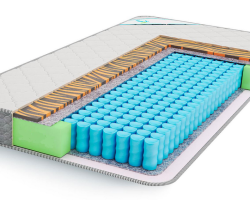Medication rhinitis has unpleasant symptoms that bring the patient a lot of discomfort. What to do in this case, read on.
Content
- The main cause of drug rhinitis
- Medicine vasomotor rhinitis: Other causes
- Symptoms of chronic, allergic drug rhinitis in a child, adult: signs
- Diagnosis of drug rhinitis
- How to get rid of drug vasomotor rhinitis, how and how to cure without surgery - clinical recommendations, scheme: drops, spray nasonex, other drugs
- Surgery for drug vasomotor rhinitis
- Medicine rhinitis: What to do during pregnancy?
- Medication rhinitis: consequences
- Prevention for drug rhinitis
- Medicine rhinitis - treatment in adults and children: reviews
- Komarovsky - drug rhinitis: video
- Video: vasoconstrictor drops. School of Dr. Komarovsky
- Video: about nose drops
- Video: drug rhinitis. The doctor recommends
Medication rhinitis is most often the result of excessive use of drops for the nose. So, if you have long tried to get rid of the nasal congestion with the help of these means, and your runny nose does not pass or even intensify, you are likely to struggle with medicinal rhinitis.
Read on our website another article on the topic: "The nose is laid, drops do not help: what to do?". You will learn how to get rid of nasal congestion without drops during pregnancy, in a newborn, how to make your nose breathe without medicine. The article describes folk remedies from a runny nose and nasal congestion, with recipes.
What other drugs can cause rhinitis? How to treat such a disease? How to get rid of it? Look for answers to these and other questions in this article below. Read further.
The main cause of drug rhinitis

Medication rhinitis is a side effect of using some drugs both locally (in the nose) and orally. This is the main reason for such a pathology. Medicinal rhinitis leads to hypertrophic changes in tissues of nasal shells, which are responsible for moisturizing, heating and cleaning the air passing through the nose, as well as for drainage and ventilation of the subordinate sinuses. Consequently, the cross -country cross -country ability is disturbed, and in some cases, even headache and soreness in the sinuses even develop.
Medicine vasomotor rhinitis: Other causes
Medication rhinitis most often occurs as a result of excessive use of drops for the nose-too long intake-more than 7-10 days that contain substances such as:
- Xylometazolin
- Oxymetazolin
- Nafazolin
- Tetrizolin
- Tramazolin
The paradox is that, with a drug rhinitis, its cause ultimately becomes drops in the nose, which are supposed to fight rinitis or runny nose. Drops for the nose that are used more than 7 days, reduce blood flow in the mucous membrane of the nose. Therefore, it is poorly supplied with nutrients. The mucous membrane begins to atrophy, becomes dry, swollen and prone to infections.
So, other causes of drug vasomotor rhinitis:
- The above types of drugs narrow the vessels of the nose, dilated during the cold, thereby reducing the edema and congestion of the nasal mucosa.
- However, if you take them too long, the body "gets used to" to these drops.
- As a result of the constant use of decongestants, the nose becomes lazy and ceases to produce substances that restore it to a normal state.
- The result is a constant runny nose, despite the disappearance of other symptoms of colds or allergies.
Rhinitis can also be caused by the use of nasal steroids to treat a runny nose, for example, allergic rhinitis. Nasal steroids are a very effective group of drugs, but in some patients they can cause, for example, dry nose, irritation or slight bleeding.
Medicinal rhinitis can also be a side effect of taking drugs used to treat arterial hypertension, for example, reserpine, hydralazinand depression - amitriptyline, thioridazine. Some contraceptives and oral decongestants can also lead to the development of this state.
Symptoms of chronic, allergic drug rhinitis in a child, adult: signs
A characteristic sign of chronic, allergic drug rhinitis is a runny nose, which is constant. Instead of improvement, the condition is worsening all the time, and the effectiveness of local decongestants is insignificant or absent. In addition, with pathology, a child or adult will have such symptoms:
- Nose edema
- Irritation of the mucous membrane
- Dryness of the mucous membrane
- Violation of a sense of smell
- Feeling of discomfort at the root of the nose
- Sleep disturbances (wheezing, snoring, apnea)
- Morning hoarse in the voice
- Dry mucous membrane of the oral cavity, throat, larynx
- The need to drink water often (also at night)
Also sometimes there are dried discharge flakes. Children often have a nasal in the voice.
Diagnosis of drug rhinitis
In order to diagnose drug rhinitis, a nose is being examined. The redness and swelling of the nasal mucosa will be visible, moreover, its surface is not smooth. A histological examination of the mucous membrane segment can also be performed. The doctor will also immediately see the absence of special cilia and an increase in the number of submucosal glands. Be sure to immediately cancel the doctor that the patient is currently using to treat the runny nose and prescribe the appropriate treatment.
It is worth knowing: The abolition of sympatomyimetics can be supported by oral preparations that have a similar effect.
How to get rid of drug vasomotor rhinitis, how and how to cure without surgery - clinical recommendations, scheme: drops, spray nasonex, other drugs

Medicine vasomotor rhinitis is a pathology from which the patient is tired. The constant runny nose, blowing, discomfort in the sinuses of the nose are annoying. How to get rid of drug vasomotor rhinitis? How and what to cure without surgery? Here are clinical recommendations and treatment regimen:
- First of all, you should stop taking drugs that caused drug rhinitis. Only then will the treatment be effective. However, as a rule, this is impossible overnight.
- Therefore, experts advise gradually reducing doses (or increase the intervals between applications) when replacing the drug with solutions moisturizing the nasal mucosa. They usually contain pseudo -Eferin or fenilefrin, whose action consists in narrowing of blood vessels, which greatly facilitates breathing.
- Although the mechanism of action of these drugs is similar to the mechanism of action of sympathomimetics (they affect the same receptors of the nasal mucosa), the opposite effect of these agents is much smaller than that of drops for local use.
- Unfortunately, the use of these drugs is limited by contraindications.
Read on our website another article on the topic: "The best drops from a runny nose for children, newborn, adults, pregnant women, and GV". You will find a list, dosage, description. You will also find out which drops to drip into the nose from an allergic, protracted runny nose, nasal congestion, medicinal for adults and children.
To protect the nasal mucosa from irritation, mild bleeding or dryness, it is worth using “special protection”. To do this, you can use over -the -counter protective sprays that are sold in a pharmacy. Those that contain pharmaceutically purified olive oil and vitamin E relieve irritation, moisturize and maintain the regeneration of the nasal mucosa. Helps well Aquamaris with Dexpanthenol, especially if there is bleeding.
It is worth knowing:
- Otolaryngologists often prescribe drops Nazonex.
- They are very convenient to use, as they are made in the form of a spray.
- The doctor prescribes depending on symptoms and age from 1 to 4 injections In each nasal passage.
- You can use this drug for a long time - up to 6 monthsbut this is only strictly according to the appointment of a doctor.
- Often, with uncomplicated rhinitis, doctors prescribe a two -month treatment regimen, after which 1 month - rest and you can repeat the course.
There are several methods of treating rhinitis caused by drugs. In this regard, hypertensive solutions are very effective. Since their concentration is higher than the concentration of physiological fluids, they stretch water from blood vessels that narrow. The congestion and edema of the nose are also reduced. Some doctors also recommend the use of nasal glucocorticosteroids (Momat Rino, Momethason, etc.) or, if they do not help, nasal antihistamines (the same Nazonex).
Surgery for drug vasomotor rhinitis
If all of the above types of treatment do not bring the expected results, the operation is recommended. Surgery is called the so -called conchoplasty - Correction of the nasal sinuses. The purpose of the procedure is to reduce abnormally enlarged (hypertrophied) nasal passages. The procedure is short - occupies about 15 minutes, And carried out under local anesthesia.
The nasal mucosa is usually restored shortly after the procedure. But in some cases, the process can be gradual. This means that the nose can swell and be laid for weeks or even months after surgery.
Medicine rhinitis: What to do during pregnancy?

Vasoconstrictor drops, which are usually prescribed for a runny nose, have not only local, but also a systemic effect. As a result of this, a pregnant woman has a chronic spasm of blood vessels, a forming placenta, which in the early stages can lead to a spontaneous miscarriage. At later stages - to primary placental insufficiency, which is a formidable obstetric pathology leading to the syndrome of delayed fetal development and intrauterine hypoxia. What to do during pregnancy if you have a diagnosis of drug rhinitis? It is worth noting:
- If you have a pathology before you plan to become a mother, then you should contact an ENT doctor. He will prescribe a treatment regimen. So you can recover from pathology and in a month to prepare to become a mother.
- It happens that rhinitis returns during pregnancy. Rhinitis of pregnant women in this case is an exclusively physiological condition, the prescription of special drugs for the nose is not required. Independent attempts to facilitate breathing in this case are excluded.
If during pregnancy you are worried about a runny nose or nasal congestion, consult an ENT doctor for advice. He will select a suitable treatment regimen, which will facilitate the condition and help get rid of dependence on vasoconstrictive drops and sprays.
Medication rhinitis: consequences
The uncontrolled use of vasoconstrictive drops leads to the fact that the capillaries are constantly in spasm. They do not function normally, blood flow is disturbed, nearby tissues suffer, since they do not receive the necessary amount of oxygen and nutrient components. The mucous membranes become dry, hypertrophied.
Advice: Do not strive to get rid of the seasonal runny nose as soon as possible, otherwise you will acquire a disease that will require more serious treatment.
In addition, psychological addiction will appear. A reflex is formed in the brain that normal breathing can only be restored with drugs. Of course, the use of drops becomes easier, but you need to think about the consequences of drug rhinitis:
- Swelling of the nasal shells
- Snoring at night
- A bad sense of smell
- Number in the voice
- Pain in the head
- Constant sneezing and lacrimation
- Nosa discomfort: itching, tingling, burning
- Atrophy of the mucosa
- Dryness in the nose
- Bleeding from the nose
- Displacement of the nasal septum
As you can see, there are many consequences. Therefore, it is better to take care of prevention. Read further.
Prevention for drug rhinitis

To prevent the development of drug rhinitis, use drops in the nose for a short time - about 5 days.
Remember that drops in the nose cannot be used more than 7 days. After that, you can simply moisturize the nasal mucosa with solutions of sea salt ( Aquamaris and others) or special moisturizing drugs ( sprays with Dexpanthenol, hyaluronic acid, sesame oil).
Medicine rhinitis - treatment in adults and children: reviews
Medication rhinitis is an unpleasant disease. Often the Lors do not make such a diagnosis, they voiced “vasomotor rhinitis”, but imply precisely a drug runny nose. Patients should know this. The treatment is prescribed correct and adequate, and it will certainly help. Read the reviews of other people about the treatment of this pathology in adults and children.
Alevtina, 47 years old
My daughter recently made rhinoplasty. She had a curvature of the nasal septum, as well as vasomotor rhinitis. As I later found out, these conditions arise precisely due to drug rhinitis. If I knew before what this could be, then I would never abuse drops in the nose with every cold of a child. Of course, with their help it became easier for her, but this all led to unpleasant consequences.
Rina, 25 years old
Often torments a runny nose. I do not like to contact doctors, so I am engaged in self -medication. Now the nasal congestion has also been added. I worry that drug rhinitis will develop. Therefore, you will have to go to the ENT doctor. Otherwise, it will not work to avoid unpleasant consequences, and it may become even worse.
Valery, 55 years old
I have a strong curvature of the nasal septum from my youth when I was engaged in football. Now the nasal congestion, snoring and even apnea are worried. The doctor says that drug rhinitis was added to the main problem, due to the fact that I often use different vasoconstrictor drops. Now you have to use expensive Nazonex, but it helps well.
Komarovsky - drug rhinitis: video
Dr. Komarovsky tells a lot to young mothers about the health and treatment of children. He has several videos about a runny nose, medical rhinitis - treatment, what to do and how to help the child. After watching these videos, you will learn a lot of useful information. Also below you will find a video story from another doctor-an ENT doctor who makes such diagnoses and successfully treats his patients.
Video: vasoconstrictor drops. School of Dr. Komarovsky
Video: about nose drops
Video: drug rhinitis. The doctor recommends
Read on the topic:







